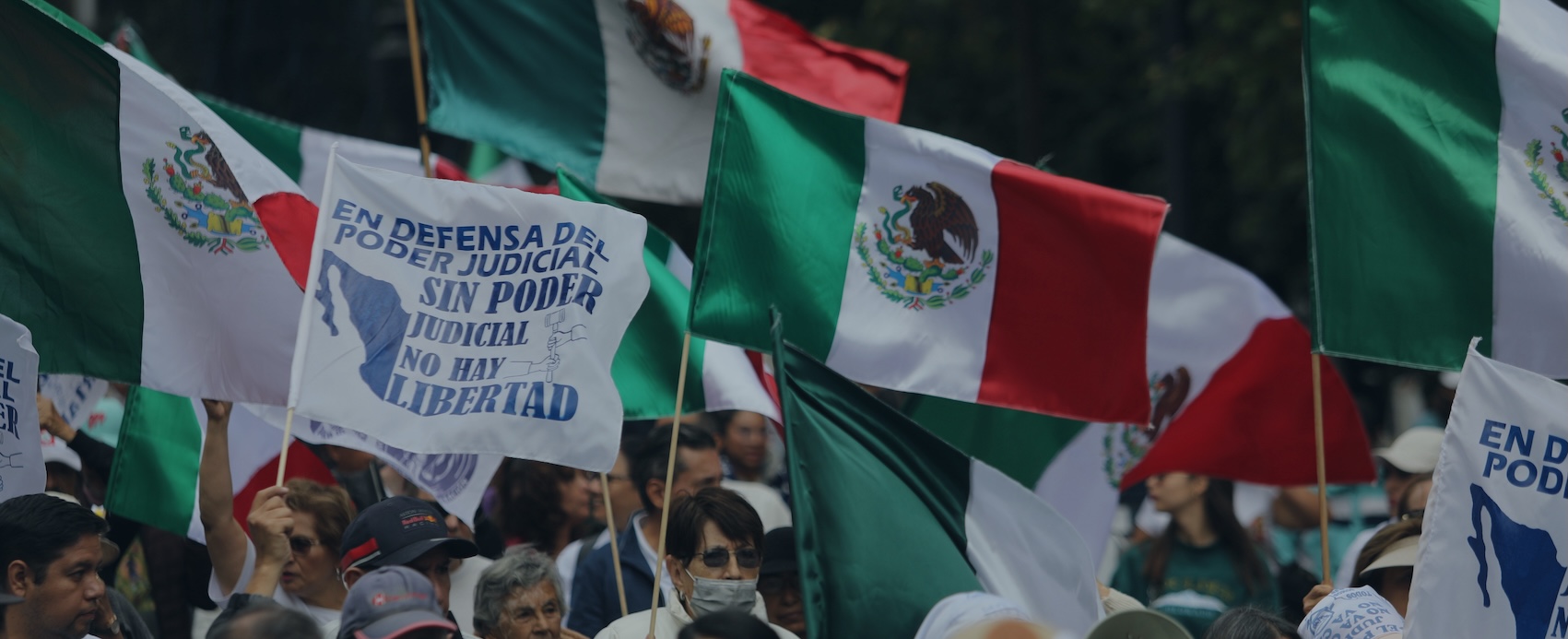Risk & Security Implications
Evacuations from High-Risk Locations Call +44 (0)1202 308810 or Contact Us →
What Mexico’s Judicial Elections Mean for Regional Stability
For the first time in modern Mexican history, citizens will vote directly to elect judges and justices, including Supreme Court members. This unprecedented shift from appointment to public vote is intended to democratise the judiciary, but it comes amid accusations of politicisation, growing civil unrest, and warnings from legal experts about the potential erosion of judicial independence.
As nearly 100 million voters become participants in reshaping the country’s legal landscape, the scale and impact of this election cannot be overstated. It redefines how justice is distributed, who holds power, and how future governance will be contested – both legally and politically.
Organised Crime’s Strategic Interest in Mexico’s Judiciary
Mexico’s cartels have long sought influence through political processes, but the judicial elections represent a new and alarming opportunity. Thousands of judgeships are on the ballot, many at the local level where cartel activity is most entrenched. The potential for coercion, manipulation, and violence is high.
With candidates self-funding campaigns and lacking institutional protection, many are vulnerable to criminal influence or intimidation. For the cartels, gaining footholds within the judiciary could be a strategic masterstroke, allowing them to secure favourable rulings, evade prosecution, and extend their control without firing a shot.
What Are the Key Security Risks During Mexico’s Judicial Elections?
Mass protests, strikes, and judicial resignations have already disrupted federal operations. Turnout is expected to be historically low, undermining confidence in the outcome. Vote counting has been centralised, reducing local transparency and increasing the risk of post-election instability.
Compounding these domestic issues is pressure from the United States. Threats of tariffs, drone surveillance, and security crackdowns have intensified friction across the border, while emboldening both Mexican and US operations against cartel infrastructure. As enforcement escalates, so too does the risk of violent backlash.
Geographic Pressure Points in Mexico’s 2025 Judicial Elections
Key states, including Baja California, Michoacán, Veracruz, and Quintana Roo, are flagged as high-risk zones where cartel interests, political tensions, and public safety intersect. Tourist hotspots and commercial hubs may see elevated security measures, but the scale of the election makes nationwide coverage difficult.
With law enforcement stretched and government resources under strain, gaps in electoral security are likely. These vulnerabilities could be exploited – not just by cartels, but by opportunistic actors aiming to influence outcomes or sow distrust.
